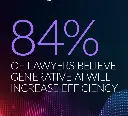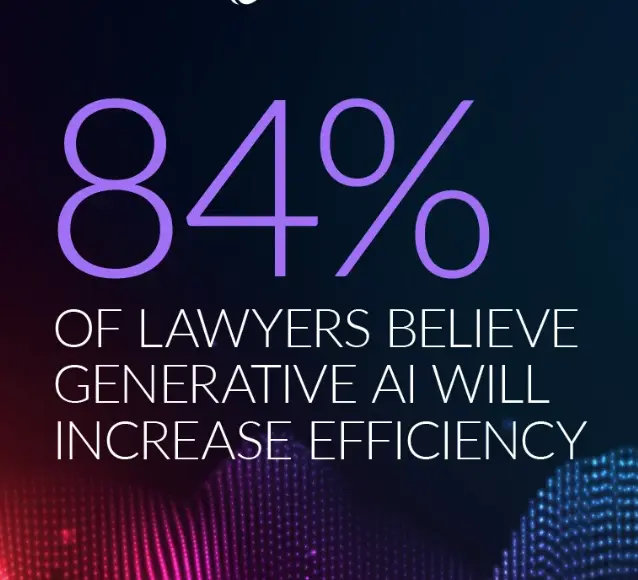Generative AI and the Law
Generative AI and the Law


https://www.lexisnexis.com/html/lexisnexis-generative-ai-story/
Generative AI and the Law: AI is here already – with the power to change the legal profession Author: Suzanne McGee Word count: 2209 words Estimated read time: 9 minutes Source code repos: None provided Supporting links:
- Generative AI & The Legal Profession Survey, LexisNexis 2023: https://www.lexisnexis.com/en-us/about-us/media/press-release.page?id=1667497591151179 ↗
- Mike Walsh, CEO, LexisNexis Legal & Professional: https://www.lexisnexis.com/en-us/about-us/our-people/leadership/mike-walsh.page ↗
- Greg Lambert, Chief Knowledge Services Officer, Jackson Walker LLP: https://www.jw.com/people/greg-lambert ↗
- Danielle Benecke, Founder & Global Head, Baker McKenzie Machine Learning: https://www.bakermckenzie.com/en/people/b/benecke-danielle ↗
- Ashley Armstrong, Assistant Clinical Professor of Law, University of Connecticut: https://www.law.uconn.edu/faculty/full-time-faculty/ashley-b-armstrong ↗
- Jamie Buckley, Chief Product Officer, LexisNexis Legal & Professional: https://www.lexisnexis.com/en-us/about-us/our-people/leadership/jamie-buckley.page ↗
- Joel F. Murray, Attorney, McKean Smith LLC: https://www.mckeansmithlaw.com/joel-f-murray.html ↗
Summary:
The article discusses the potential impact of generative AI like ChatGPT on the legal profession. It notes that while AI tools have been used in law for over a decade, recent advances like ChatGPT have renewed interest in how AI can transform legal work. Potential applications include drafting documents, analyzing large datasets, and leveling the playing field for smaller firms. However, risks include AI generating inaccurate or fictional information. Custom models trained on relevant legal data, like LexisNexis' 144 billion document repository, can mitigate this. Lawyers believe AI will increase efficiency and change practice, but not wholly replace human skills like judgment and creativity. Concerns around copyright, IP, and confidentiality exist regarding training data. Experts say AI will augment lawyers' work rather than replace them, allowing focus on high-value tasks. AI-proficient lawyers are expected to replace those who don't adopt new tech. Overall, AI has immense potential to transform legal services.
Evaluation:
This article provides a balanced overview of the potential impact of large language models like ChatGPT on the legal profession. It highlights several promising applications in areas like drafting, research, and analysis where these models can increase efficiency and capabilities. The article also importantly covers risks around inaccurate output, copyright issues, and confidentiality that need to be addressed. It notes experts believe AI will augment rather than replace lawyers, allowing them to focus on high-judgment tasks. The sources cited from legal industry executives, law firm partners, and academics lend credibility. Overall this is a strong analysis of how large language models could transform legal services, if applied judiciously with proper training data. It provides a thoughtful assessment of the technology's applicability in this field. The article gives a realistic perspective on the technology's current abilities and limitations. It would be a helpful read for those exploring use cases for large language models in the legal industry.
![[Other] Generative AI and the Law](https://lemmy.world/pictrs/image/42cccd2c-d4a6-410c-9b7f-c6f81e381d37.png?format=webp&thumbnail=196)